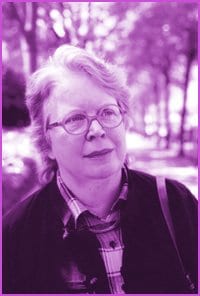Lorraine Weir says she hasn’t changed much about the way she teaches and she doesn’t plan to-despite the lawsuit still pending against her.
Weir is an English professor at the University of British Columbia (UBC). She’s also one of the subjects of a lawsuit by a former Anglican student.
Cynthia Maughan, 43, sued UBC and four of its professors last November after she unsuccessfully appealed the B-minus mark she received in Weir’s transgressive literature class. She says the university discriminated against her as a Christian and subjected her to hatred and contempt.
Now she’s suing the university under a seldom-used law called the Civil Rights Protection Act. And she’s seeking $18 million in damages.
Three months ago, UBC’s lawyers appealed to have the suit dismissed. They said Maughan’s allegations were baseless and did not constitute a valid legal action.
Last week, a BC Supreme Court judge disagreed.
Justice Brenda Brown ruled that, on the whole, the issue should proceed to trial, though she did strike out a few parts of the claim pertaining to UBC’s senate and a few of its policies.
Weir says she’s not surprised the case is going forward. She says she never really expected the dismissal request to win in the first place.
Remember, the judge didn’t rule on the merits of the claim itself, Weir points out. She only said that the matter should get a chance to be heard in court.
In her statement of claim, Maughan says the trouble began during an e-mail exchange three years ago. Another graduate student had been discussing then-Canadian Alliance leader Stockwell Day’s views on homosexuality and abortion. “Screw respect,” the student allegedly wrote. “He makes me recall fondly a time-period when Christians were stoned.”
Maughan says she later missed out on at least one educational opportunity when Weir and the rest of the transgressive literature class decided to hold an additional study session on a Sunday.
Overall, Maugan says UBC, four of its professors and the transgressive literature class discriminated against her as a Christian on numerous occasions.
Weir says she was just doing her job. She taught a graduate seminar and some of the issues challenged Maughan as a student. There’s nothing irregular about that, she says.
“I still do my job to the best of my ability,” she continues. “I’m not going to modify that.”
Still, Weir says, she now includes little advisories on her course descriptions to warn students that they may find some of the course material controversial. “I would certainly never have thought that appropriate in the past,” she says.
“Literature arouses passionate feeling. That’s what it does. But in the curious atmosphere of this on-going process it seems necessary to advise people of what is self-evident.”
This case could send a chill through the academic world, warns Craig Jones, past president of the BC Civil Liberties Association.
“The university is a place to be challenged intellectually and, frankly, to be offended and to respond to those offences with more speech and dialogue,” he told Xtra West a few months ago.
“This lawsuit is primarily about academic freedom,” Weir agrees. And part of academic freedom is the freedom to include whatever material professors consider appropriate for their courses. “To do less than that would be a disservice to our students.
“When we bow to public pressure and alter course content requirements then we lose one of the fundamental values of the university-academic freedom.”
Weir and her fellow defendants, Susanna Egan, Anne Scott and Judy Segal, are now being represented by a legal team retained by the Canadian Association of University Professors. Joe Arvay, well known for his work defending Little Sister’s against Canada Customs and fighting the Surrey school board’s 1997 decision to ban three gay-friendly children’s books, is part of the team.
Weir says the trial will likely begin sometime in the new year.

 Why you can trust Xtra
Why you can trust Xtra


